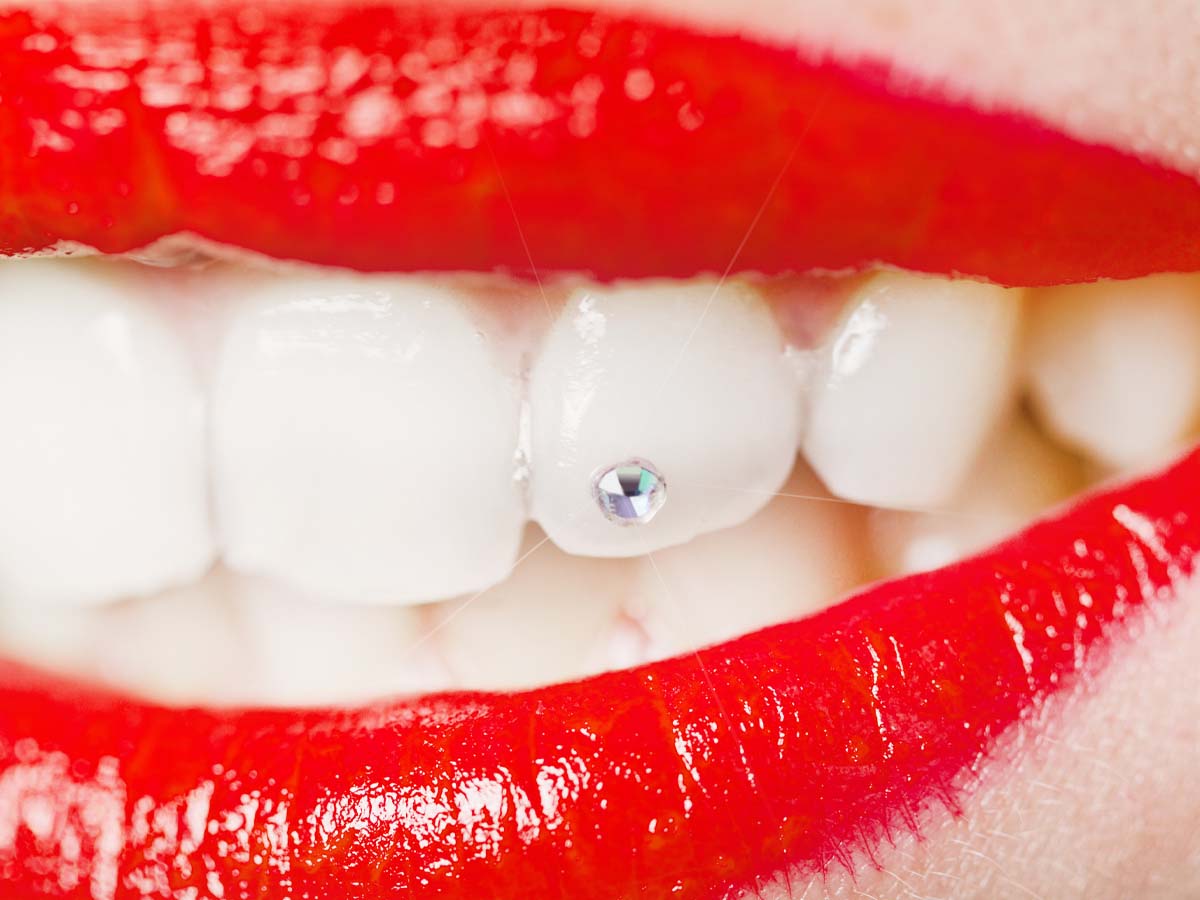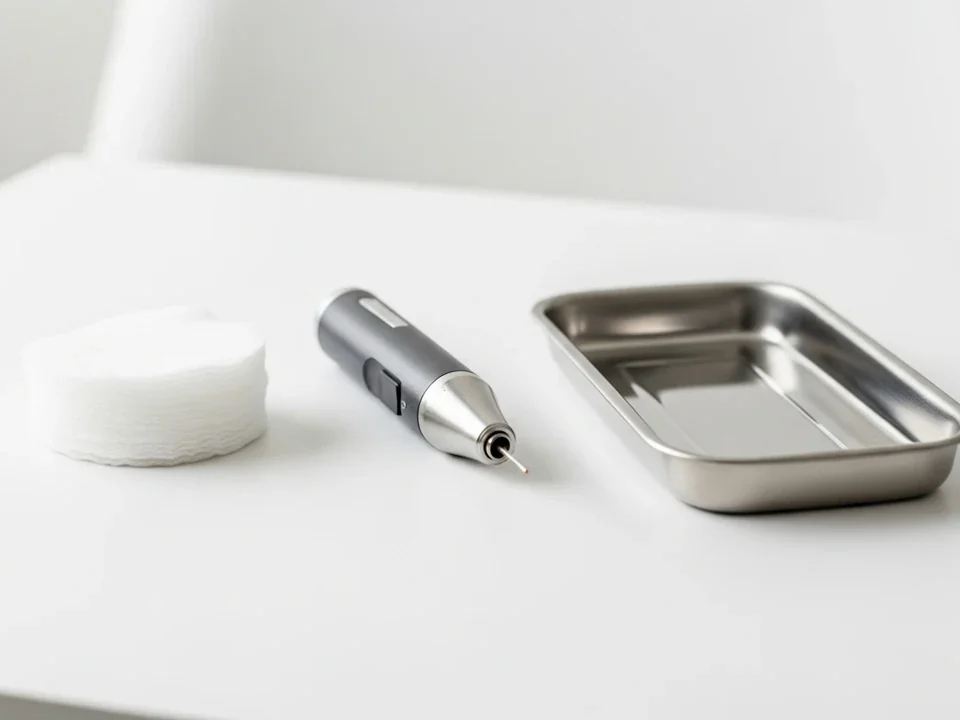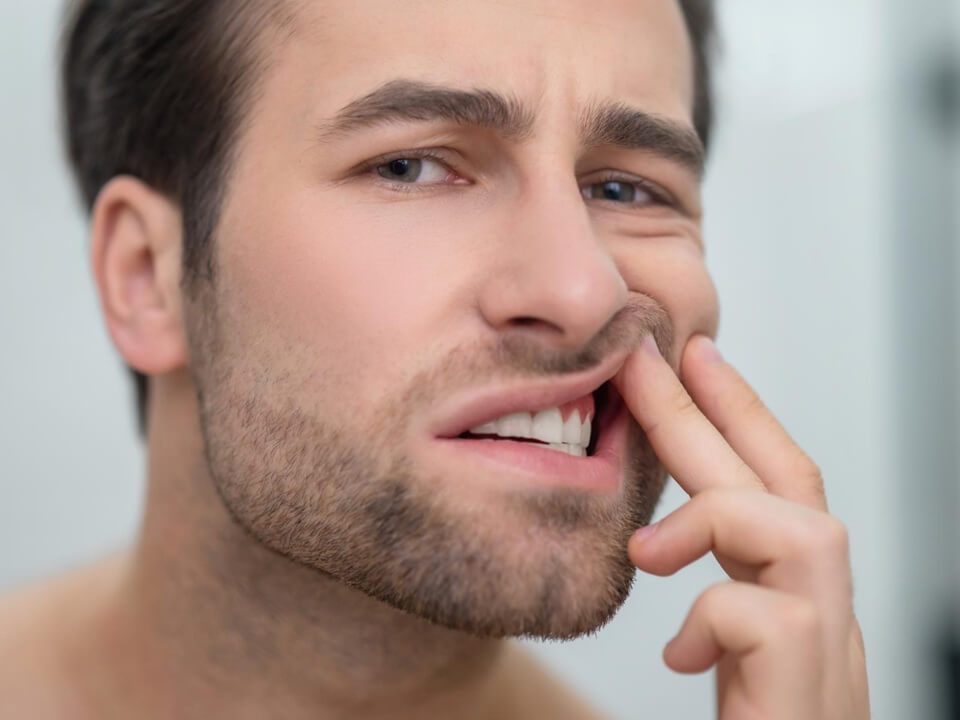
Can You Eat with Cosmetic Teeth?
November 22, 2023
Can a Single Implant Be Placed to Support Two Adjacent Teeth?
November 29, 2023Healthy gum plays a vital role in creating a beautiful smile and maintaining the overall health of your mouth and teeth, so the importance of the gums is as significant as the teeth, and it is necessary to check it every once in a while. Usually, after seeing a gum problem, the question arises: is it essential to see a dentist or a gum specialist, or in Phoenix, Arizona, can I fix bad gums at home? In the following, we will explain the answer, the treatment methods, and the time to visit the periodontist.
What Is a Bad Gum?
Bad gums refer to gums that are in an unhealthy condition. Unhealthy gums often show signs of gum disease, ranging from simple inflammation to more severe problems. Suppose the gums are not treated in the early stages. In that case, they can lead to severe injuries, including receding gums, or they can even lead to the deterioration of the supporting bone structure and, eventually, the loss of teeth.
What Causes Bad Gums?
Various factors can cause bad gums. Here are the leading causes of bad gums:
- Poor Oral Hygiene. One of the most common causes of bad gums is poor oral and dental hygiene, which creates a sticky layer of bacteria on the teeth and gums, eventually leading to gum problems.
- Plaque Buildup. If the plaque is not removed by regular brushing and flossing, it turns into tartar and can irritate the gums.
- Genetic Susceptibility. Some people are prone to gum disease, and even with oral hygiene and special measures, they may still suffer from gum disease due to their genetic susceptibility.
- Hormonal Changes. Hormonal changes, such as fluctuations during pregnancy, puberty, menstruation, and menopause, may cause the gums to become more sensitive.
- Smoking and Tobacco Use. Smoking causes the onset and progression of gum disease. Using tobacco in any form can endanger gum health because nicotine restricts blood flow to the gums and reduces their ability to heal.
- Nutritional Deficiencies. A diet poor in nutrients, including vitamin C, can compromise the body’s immune system, make it more difficult for the body to fight infection, and increase the likelihood of gum problems.
- Teeth Grinding or Bruxism. These harmful habits can exert excessive force on the tissues that support the teeth and cause tissue destruction, receding gums, and other problems.
- Stress. Chronic stress causes many health problems, including the weakening of the body’s immune system, which reduces the body’s ability to fight off infections.
- Age. As people age, natural changes occur in the body, such as a decrease in the immune system and a weakening of the body, which causes various problems, including problems in the health of teeth and gums.
Can You Fix Bad Gums at Home?
If gum problems are detected early, you can help improve gum health and fix bad gums at home by maintaining oral hygiene, adopting a healthy lifestyle and good habits, using natural remedies, and daily care.
But the critical question is, How to fix bad gums at home? Here are some essential practices and habits:
- Proper Oral Hygiene. Brush and clean your teeth twice a day for at least 2 minutes each time; use a soft toothbrush and suitable toothpaste. Floss carefully to remove plaque between your teeth, and use an antimicrobial mouthwash to rinse your mouth to reduce the bacteria in your mouth.
- Dietary Changes. Eat a moderately balanced and nutritious diet rich in fresh fruits and vegetables, especially vitamin C, which is effective in gum health. Also, reduce the consumption of sweet and acidic foods and drinks that can cause gum problems as much as possible.
- Stay Hydrated. Drinking plenty of water prevents dry mouth, washes away bacteria, and can help with gum problems.
- Stress Management. Stress can dramatically lower your immune system and cause gum problems. So, if you’re chronically stressed, try stress-reduction techniques like meditation or yoga or seek help from a therapist.
- Avoid Tobacco Products. Tobacco and nicotine have very destructive effects on the health of teeth and gums. In addition to causing yellowing and staining of teeth, it can cause severe problems for your gums, so if oral health is important to you, take smoking cessation seriously.
- Saltwater Rinse. Gargling with a simple solution of warm water and salt can help reduce gum inflammation and kill bacteria in your mouth. Making this solution is simple: Rinse your mouth with a mixture of salt (half a teaspoon) and a glass of warm water. Rinse for 30 seconds.
- Oil Pulling. Some people find oils like coconut or sesame oil effective in reducing bacteria and promoting gum health. Swish the oil (a spoonful) in your mouth for 15-20 minutes, then rinse your mouth.
- Turmeric Paste. Turmeric has anti-inflammatory properties. Make a mixture of turmeric powder with water to make a paste, then gently massage it on your gums.
- Aloe Vera Gel. Aloe vera has a soothing effect. Using aloe vera gel on the gums and gently massaging it can relieve inflammation and heal bad gums.
- Tea Tree Oil. Tea tree oil, with its potent antimicrobial properties, can help heal or even treat gum infections. Mix tea tree oil (2 drops) with about 240 ml of warm water, swish it around your mouth for about 30 seconds, and then rinse it.
Early Signs of Bad Gums
Knowing the early signs and symptoms of gum disease is very important for timely treatment and prevention of gum disease progression. Here are some early signs to look out for:
- Gingival Redness
- Swelling
- Tenderness or Sensitivity
- Bleeding Gums
- Bad Breath or Halitosis
- Receding Gums
- Gum Pockets
- Loose Teeth
- Changes in Tooth Alignment
- Discomfort While Chewing
- Visible Plaque or Tartar
- Increased Tooth Sensitivity
- Persistent Gum Itching
- Changes in Gum Texture
What are the Risks of Untreated Bad Gums?
Not cured bad gums can have significant or sometimes even irreversible consequences, including bad breath, gum recession, deterioration of the supporting bone structure, tooth loss, pain, and even potential systemic health risks such as heart disease and diabetes.
Also, ignoring early gum problems may lead to worsening conditions and require complex and expensive dental procedures for treatment. So, if you have any problems with your oral health and gums, take advantage of the time because the sooner you treat it, the less money you will spend on it and the less pain you will experience.
How Long Does it Take to Fix Bad Gums?
The amount of time it takes to fix bad gums varies and depends on the extent of the gum problem and how consistently you follow home care methods or treatment by a doctor. Here we review them:
- Mild Gum Problems. Mild gum problems, such as gingivitis, can often improve with good oral hygiene, including proper brushing and flossing, within a few weeks.
- Moderate Gum Problems. If the gum problems are moderate, it may take weeks to months to see significant improvement with care and home remedies. These treatments include natural remedies such as washing with warm salt water or aloe vera gel.
- Severe Gum Disease. For severe gum disease, home remedies are usually not enough and require professional dental treatment, which may include deep cleaning, scaling, and, in some cases, gum surgery. Healing can take several months and may require ongoing maintenance.
- Consistency. Consistency in following the recommended home care methods is vital to see positive changes in gum health. Ignoring or doing them irregularly can delay recovery and prolong treatment time.
- Professional Treatment. In many cases, professional dental care is necessary to fix bad gums. Dentists can perform a detailed examination and provide different and specialized treatments according to the needs of your gums to address the root cause of your gum problems.
When to See a Dentist Instead of Trying to Fix Bad Gums at Home?
If you have any of the following conditions, visit an expert instead of trying to fix bad gums at home:
- Severe pain in the gums
- Bleeding while brushing or eating
- Persistent bad breath
- Receding gums
- Loose or falling teeth
- The presence of pus, discharge, or abscess on the gums
- Persistent swelling of the gums
- Ulcers, sores, or lesions on the gums
- High-risk factors like a history of gum disease or chronic health conditions
- No improvement with home remedies
- Not checking teeth and gums for a long time
Professional Services to Fix Your Gums in Phoenix, Arizona
Get your best smile in Phoenix, Arizona! At Atrium Dental center, our team of experts is here to help you to have healthy gums and a beautiful smile. We can improve your oral and gum health with advanced treatments and personal care. Say goodbye to bad gums by scheduling your consultation now.
The Bottom Line
By adopting simple methods and improving your lifestyle, you can take adequate steps to fix bad gums at home. Remember that the gums are vital to your oral health, so it’s better to do your best to take care of them. However, if you have severe or persistent gum problems, see a dental professional and seek advanced dental treatment if needed. Have a beautiful and healthy smile!
FAQs
Can I replace professional dental care with home care?
Although home remedies are usually helpful and may even cure or improve gum problems, they are not a substitute for professional dental care.
What’s the best way to maintain gum health in the long term?
The best way to maintain long-term gum health is through regular oral hygiene, a balanced diet, regular dental check-ups, and risk factors prevention.
Can receding gums grow with home remedies?
Home remedies may help reduce receding gums, but they cannot cure receding gums, which often require professional treatment.
Can I fix gum disease myself?
Sometimes, you can improve gum health at home, but gum disease should be treated by a professional dentist.
Does rubbing salt on gums help?
Rubbing salt directly on the gums is not recommended, but gargling a solution of warm water and salt can reduce bacteria and help keep the gums healthy.
What do bad gums look like?
Bad gums may be red and swollen, have a receding or uneven gum line, or bleed easily.



